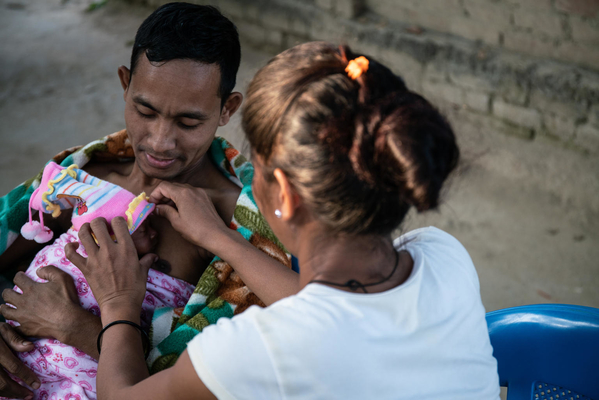PRESENTATIONS ARE POSTED IN THE RIGHT HAND MENU
Summary
Newborns are the most vulnerable when health systems are stretched. With only 10 years to meet the SDGs, and the COVID-19 pandemic threatening to lose hard-won gains, we need to act fast to transform care for the most vulnerable.
Improving care for newborns does not only drive down mortality and disability; it also leads to improved health during the lifecourse, and improved human capital.
More data is needed on coverage, equity and quality of care to drive more rapid change.
An example from the Eastern Mediterranean region showed how data was used to address congenital conditions. The experience from Latin America and the Caribbean demonstrated the importance of collecting and analyzing data to grasp the incidence of retinopathy of prematurity (RoP) as a leading cause of blindness.
Q&As covered topics such as the type of research that would be most useful now to improve care for newborns, public health strategies to prevent congenital conditions, the integration of R0P guidance into existing newborn care protocols and guidance, and guidance on caring for a mother and a newborn in the time of COVID-19.
Presenters:
- Prof. Joy Lawn presented key findings of ‘What the numbers say’, the second chapter in the Survive and Thrive: transforming care for every small and sick newborn report.
- Prof. Khalid Yunis presented the Eastern Mediterranean experience.
- Prof. Pablo Duran talked about retinopathy of prematurity in the LAC region.
- Dr. Ornella Lincetto presented current data on COVID-19 in pregnant women and newborns.
The session was facilitated by Dr. Gagan Gupta, Health Specialist, Maternal and Newborn Health, UNICEF.
See also: session 1 of this webinar, on 20 May at 10 am CEST
This is the second webinar in a series on Transforming care for small and sick newborns, organized by the World Health Organization and UNICEF, in collaboration with the Network for Improving Quality of Care for Maternal, Newborn and Child Health.
See the topics and dates of the whole series
Photo: ©UNICEF/UNI259335/van Orsouw

